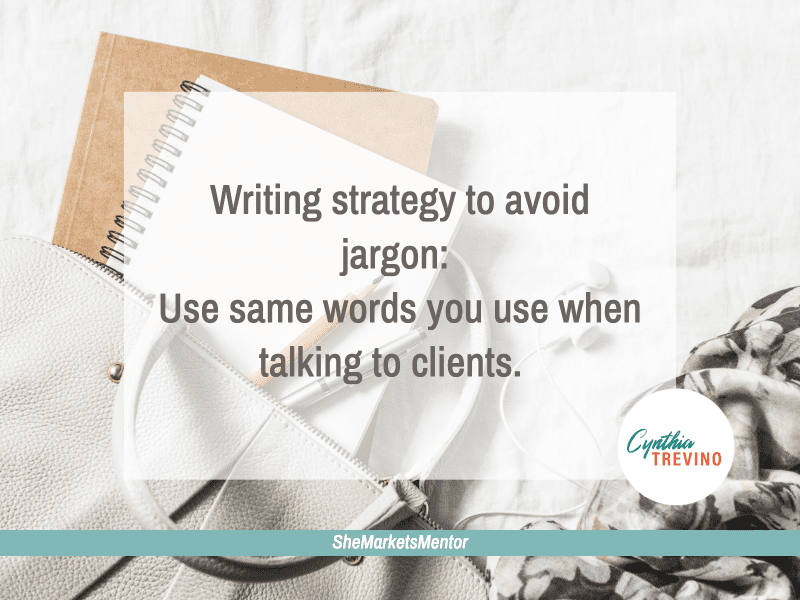9 Ways to Improve Your Blog Writing Skills (And Engage Awesome Coaching Clients)

Aren’t you interested in ways to improve your blog writing skills?
You’re not the only one, not by a long shot.
Maybe you can relate to Claudia.
Claudia was feeling frustrated. Everywhere she looked, there were other health coaches with exciting blog posts that seemed to jump out of the screen at her.
She wanted to be able to create something similar. She wanted to improve her blog writing skills and make an impact on people’s lives but she had no idea how to start.
As a newly certified life coach, Claudia knew that writing blogs would help spread her message. It would help build an audience for her services. But every time she sat down at the computer, all sorts of doubts filled her mind:
- What should I write?
- Will anyone read it?
- Does my blog post have any value?
Her inner mean girl voice was constantly nagging away at her, making the whole process even more difficult than it already was. Have you ever heard your inner mean girl when you sit down to improve your blog writing skills? I sure have.
At first, Claudia decided not to give in to self-doubt and push through anyway but despite giving it her best shot, nothing seemed good enough to publish on her website. Especially on social media where everyone can see.
She felt like a failure until one day when inspiration struck: why not take advantage of being a nurse as well as a health coach?
With this new thought in mind, Claudia began researching various topics related to both nursing and coaching. As a medical professional, this exercise uncovered a ton of topics that could be helpful to her dream clients.
Her audience of potential clients felt overwhelmed about how to get back to their goal weight and what to cook for dinner that was easy and healthy. From funny stories about patients trying to lose weight and managing stress to avoid overeating, the potential blog posts offered advice from someone with firsthand experience – as if it were coming from an understanding friend.
It took some trial and error before Claudia finally found what worked best: combining personal experiences with professional expertise into witty yet informative content. Seems that her potential dream clients genuinely enjoyed reading (or so they told her).
With each passing week, more readers subscribed to her email list (hooray!). They also commented on how much they appreciated having her pop into their inboxes with such valuable material written by someone who truly understood their situation inside out.
And soon enough without even realizing it herself – Claudia became known as an expert health coach for women over 40, thanks largely to those inspiring blog posts.
Maybe, like Claudia, you want to improve your blog writing skills. You’re not alone.
There are a boatload of reasons why both new and experienced women coaches struggle with blog writing skills.
It can be (incredibly) hard to improve your blog writing skills, from knowing what subjects to write about, how to “talk” with clients, how to sound like the expert you are, and how to sound like yourself in blog articles. But don’t worry…
I’m here to help you through these struggles so you can continue on your journey as a blog writer and grow your coaching business by engaging dream clients with your blogs, all at the same time.
Here are my top 9 tips to improve your blog writing skills
1) To improve your blog writing skills, be conversational
When creating content to engage dream clients, shift how you think about writing. Avoid writing like it’s a college term paper. The truth is, you want to be conversational when writing anything for future clients.
Write your blogs, or anything for your business, as though your ideal client is sitting next to you. That will help you speak to “The One”, your ideal, dream client.
To tap into your dream clients’ mindset, write as though she’s sitting across the table from you.
By doing this in your blog posts, web pages, and social media posts, you’ll improve your blog writing skills.
I know what you’re thinking…how do you even do that?
Here’s how:
- After you’ve written a blog post draft, read it out loud
- Close the door so your family won’t ask who you’re talking to
- You’ll be amazed at how many awkward sentences you’ll catch by reading the post aloud
- You’ll be able to tell if your blog post ‘sounds’ like you sound when you’re speaking in person
To improve your blog writing skills even more, ask yourself:
- How does your blog writing flow?
- How do your sentences sound?
- Does your writing sound natural, like you’re chatting with a client in person?
- Does it sound formal, like you’re presenting a tech paper to a committee?
Go back and soften phrases. Tweak sections that sound stiff. Shorten long sentences. (I have to do this. All. The. Time. Long sentences are my achilles heel.)
But, make sure you have a good mix of both short and longer sentences so you can keep your readers engaged.
They say, practice makes perfect. It’s really the best way you can improve blog your writing skills.

Create Client-Attracting Content
Stop spinning your wheels about the best content to create, so you can bring in clients. Get this guide and follow my simple 5-step Client Clarity System to create content your future dream clients search for.
That way, you can foster meaningful connections and pack your calendar with clients who love your work.
By signing up, you agree to this website’s privacy policy and terms and conditions. We promise we won’t send you spam. You’re welcome to unsubscribe at any time.
2) You can improve your blog writing skills with this action
You’ll use different parts of your brain when crafting the elements of a blog post. Elements like the headline, the outline, the keywords you’ll use, and proofreading your article.
An approach I use is to create the title in one day. After that, write your ugly first (rough) draft another day (or time). Finally, edit your final post after you’ve put it away for at least 24 hours. That way, you’ll have fresh eyes to catch any grammar, spelling mistakes.
Your title takes the most time, experts say to generate at least 10 — 15 draft titles. You want to spend the most time on writing a powerful title that your audience wants to discover more about. A title that taps into their emotions.
Use keywords in your titles that ideal clients search for. Lastly, choose the title that your future clients will relate to the most.
Writing a rough, sloppy first draft is super important. Always allow yourself the time to do so.
Bookmark this post. Later, refer to it when writing your next blog post or email to your list.
3) Make your content personal
Writing content that feels personal to future clients sounds valuable, doesn’t it? For starters, it helps you build connections with website visitors.
But what does that mean?
To clarify, increasing the know-like-trust factor with readers is an authority-building goal you must weave into your writing, content creation, and marketing. It’s going to help you both improve your blog writing skills and make connections with potential clients.
Making content personal doesn’t mean you share private information. It means you include what you’re comfortable sharing: your personal worldview, your values, and experiences that helped to shape your expertise.
Above all, you want readers (future clients) to feel like they know you, like you, and trust you.
Because then they’ll happily say yes to your invitation to take the “next step” with you. Like, subscribe to your email list or click to your services page to learn about hiring you.
But, how do you do that?
Here’s how:
The best way to ensure readers feel like they know you, is to talk directly to them in your content. Talk about their pain points. Share empowering tips specific to their challenges.
Fact is, in your blog posts/titles, videos, and podcasts, talk mainly about clients’ pain points and dreams. Problems they most struggle with. Their highest aspirations.
You can also craft content to inspire and entertain your audience. This is a plus.
Provide value in each content piece by educating future clients in a small yet significant way.
When you focus like a puppy chasing her ball on your dream clients’ urgent problems and dreams, it will help you to improve your blog writing skills.
Related: Want to Create Content that Engages Your Clients? Avoid These 4 Mistakes
4) Don’t talk about features, instead…
If you’ve been in business a minute, you’ve heard this one. Your products and services have both benefits and features.
As a purpose-driven coach looking to improve your blog writing skills, you want to talk first about the benefits of your services in your posts.
Examples: how your services help clients achieve their health or life goals; how they’ll feel after completing your program; what kinds of results they can expect to enjoy, and more.
By explaining the benefits of your coaching, consulting, or other expert services, you paint a picture of how working with you makes your clients’ lives better. Happily, it also helps when you want to improve your blog writing skills.

Benefits of your coaching services for clients can be that they…
- Benefit from a trustworthy guide who gently nudges (or pushes) them in the best direction
- Can begin to solve years-old problems
- Enjoy the gift of a safe space to share ongoing struggles
- Discover baby-steps to get unstuck, that can become lifelong habits
- Create a tangible, easy-to-follow plan to help them accomplish long-wished-for dreams
The truth is, you want to share both features and benefits.
For that reason, while benefits demonstrate how much your clients gain from working with you, features add value too. Your program’s features show your authority as an expert coach, teacher, and leader.
Features talk about the ‘nuts-and-bolts’ of your programs and services.
Example: a feature of your group coaching program is that the group meets via zoom each Tuesday and that replays are available if members can’t make it live.
Additionally, features can communicate trust because they detail how your clients access your services. Details like:
- The number of zoom calls included in your program
- How to access the weekly call recording
- Process to get questions answered between group calls
- How to submit their work, or a challenge, for review on group calls
5) Do this to keep readers engrossed in your content
Adding transition words is an amazing way to quickly improve your blog writing skills. If you’re wondering, transitions are words and phrases that keep your readers involved. They entice readers to continue following the message, content, or baby steps you share.
Let me give you some examples:
- Therefore,
- For example,
- Similarly,
- Above all,
- Meanwhile,
- For starters,
- Needless to say…
- Now:
- Question for you:
- So,
- So read on…
- That means…
No doubt about it: transitions are important, people. Why?
Because as a successful woman business owner you include a Call-to-Action (CTA) in EVERY blog post, email, social media post, article, podcast, and video. Don’t you?
Anyhow, you want readers (potential clients) to continue absorbing your content through to the end. And guess what happens at the end of your blog post? You share a CTA.
So you can build relationships with them, your CTA invites readers to join your world by…
- Subscribing to your email list
- Attending your upcoming Facebook Live stream
- Learning more about your new group coaching program
- Opting in to your list for a copy of your fresh freebie, designed to give them a big boost
- Clicking to your coaching services page to find out how to work with you
Yes, transition words have a big job to do.
Here are three authoritative sources about how to use transition words to improve your blog writing skills:
- This SmartBlogger post explains how transition words help readers understand how your ideas relate to each other.
- Yoast (makers of WordPress website plugins) explains the advantages of using transitions. Check this post here.
- Search Engine Journal explains how transitions help you with search engines.
6) Make your posts long enough so you can engage your readers
Online marketing experts say that search engines prefer blog posts with at least 800 to 1200 words. Other experts say the optimal blog post length is 2000 to 2500 words.
For reference, an 8 ½ by 11 inch typed page, double-spaced contains about 400 words. So that means, your blog posts should be 2-3 pages long.
It breaks my heart when coaches, looking to get their voice out, write super short, 2 paragraph blog posts. What if the website visitor doesn’t know you yet?
Are you sharing enough in blog posts about who you are as a coach, so potential clients want to learn about your services? About yourself as a person, so you can build trust with them?
No question, you can break the rules and write short content. After all, you’re the boss.
As you decide which rules to break and which to follow to improve your blog writing skills, consider this…
What if this blog post is their first introduction to you? Have you written enough words so that they think?
Wow, she understands where I’m coming from.
This coach has been through what I’m struggling with.
She’s been where I’m stuck today.
I love how she explained my problem. Wonder what her packages are like.
And the best part?
As long as you follow Rule #3 above, it will be easy-breezy to improve your blog writing skills.
7) Use the same words in your writing that you use here
Here’s an easy one, this is another remarkably rapid way to improve your blog writing skills. All you have to do is “write like you talk.” Especially the way to speak to clients.
As a follow on to rule #1 above, avoid using technical terms (industry jargon) that your peers understand, but your clients do not.
A common example:
Writing about the different coaching modalities in blog posts. Remember: your clients likely aren’t studying to become life, wellness, or health coaches.
Your readers search for special, tiny tips to make their day. They’re hoping for baby steps, small ways to get unstuck, find their soul mates, solve long-standing problems, get promoted at work, fix their finances, or have better relationships.
They’re seeking smart solutions.
Review your drafts. Replace terms that your clients won’t 100% understand.
And just like that, you’ll improve your blog writing skills.

Related: How to Create Content for Dream Clients (So You Can Grow a Coaching Business)
8) Write a combination of short and longer sentences
When it comes to ways to improve your blog writing skills, this one is subtle. Yet the simple truth is, making sure to mix up the length of your sentences is key to keeping readers engaged in your content. It’s true.
I’ve got to say, this is a rule I’ve had to work hard on. As I’ve shared (confessed), my English Lit undergrad degree taught me to write compound, complex sentences. To earn an “A”, I had to fill up several *blue books* during finals.
Old habits die hard.
Turns out, college prepared me well. During my corporate life in the 1980s-1990s, executives loved long, comprehensive documents. Go figure.
Today, times are different when it comes to your online writing.
Now of course, you’re looking to improve your blog writing skills so you can make connections and sign new clients.
Here’s how:
When writing blogs or website content, keep readers humming along with you by using short sentences. You can mix it up with a few longer ones.
Try it with social media posts.
9) “Put yourself in your customers’ shoes. First, take off your own.”
I love this quote by Scott Cook, founder of Intuit (maker of QuickBooks) because it applies to every aspect of your business. So you won’t be surprised, it’s also key how you can improve your blog writing skills.
Don’t forget, while following blog writing rules, your brilliant end goal is to tap into your clients’ mindset.
Here’s what I mean: at this moment, you are not your client.
You may have been your client last month, last year. Most certainly, you aren’t now. You’ve come a long way.
But you ask, how do you take off your own magical shoes?
- Review your dream clients’ story
- Recall their devastating situation
- Share your small but bold solutions
- Frame your blog posts from your clients’ point of view
Conclusion
The key to writing blog posts, any content for engagement, that are interesting and captivating is making your content feel personal, meaningful to dream clients.
You’ll want to use words you typically say in client conversations, not industry jargon. One guideline to always follow: talk about your clients’ top problems or dreams.
You want to increase the know-like-trust factor with readers, which is an authority-building goal you must weave into your writing, content creation, and marketing. It will help you both improve your blog writing skills and make connections with future coaching clients.
To keep yourself energized to create content so you can engage more potential clients, add at least 3 of these practices to your writing.

What if you could finally create content consistently?
If creating your marketing content has felt like a chore, a time-suck, or a massive mystery, you may have given up on content entirely.
But the truth is:
Content is key to attracting ideal clients and filling your programs. So don’t give up!
If your content ideas are buried in your beautiful brain, you want a process to help your words flow.
You want specific actions to implement so that the content you create stands out to your dream clients.
When you schedule a free Clarity Call, together, we’ll uncover your personalized marketing content actions. That way you can impact more clients. Click below to set up your FREE Clarity Call.





